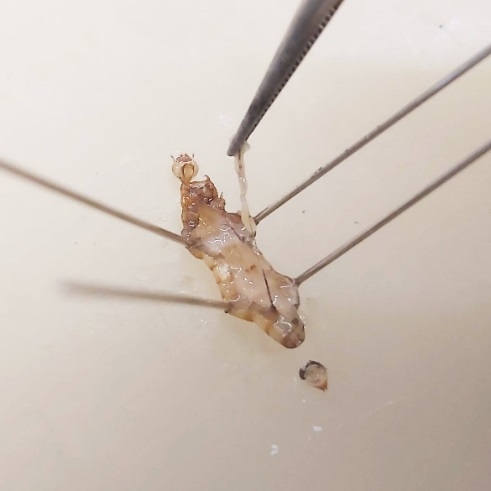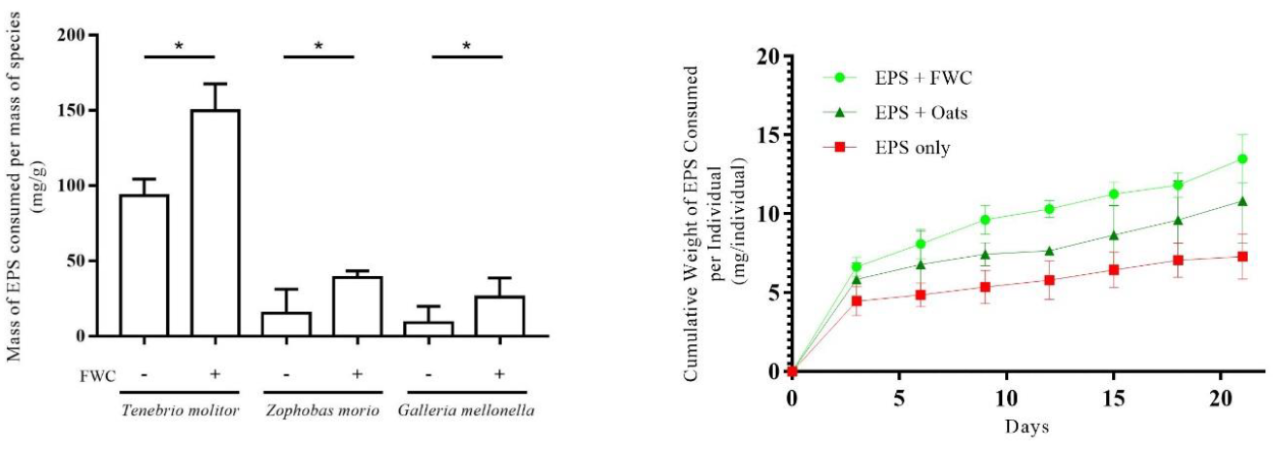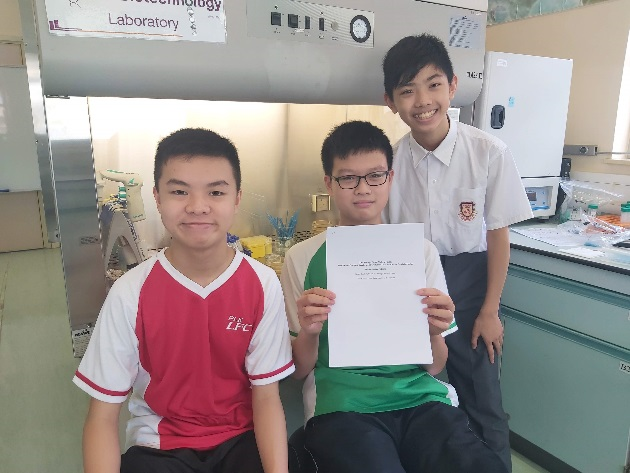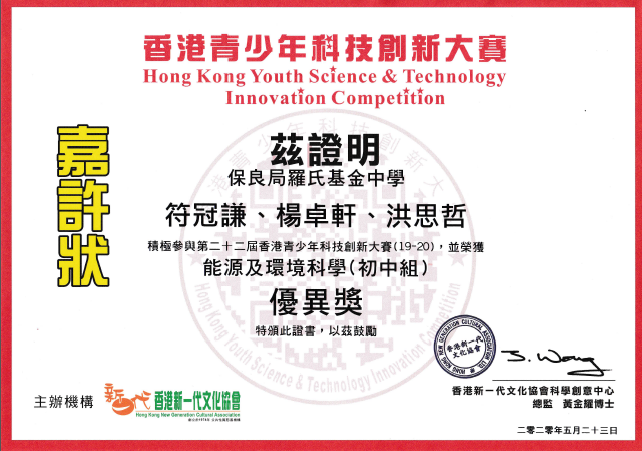Expanded polystyrene (EPS) is a type of plastic that poses serious impact to the environment. The ingestion of EPS can kill animals and cause harm to the entire food chain. It takes one thousand years for the complete degradation of EPS in nature. Previous work showed that mealworms (Tenebrio molitor), superworm (Zophobas morio) and greater waxworm (Galleria mellonella) are capable of digesting EPS. However, the use of worms for EPS degradation is not popular because of the slow rate.
To speed up the EPS degradation by worms, a research project was carried out by three S.1 students (Fu Kwun Him (1M), Yeung Cheuk Hin (1N), Hung Sze Chit (1N)). They monitored the effect of different additives on EPS consumption, weight gain, survival percentage and molting percentage of different types of worms continuously for a month. They foundthat food waste compost (FWC) is an effective additive to accelerate EPS consumption in mealworms. Their findings shed light on a potential industrial application for degrading EPS. Not only could the method degrade EPS in a more efficient manner, it could also provide a proper use of food waste.
Their work was recognized with a merit award in the 22nd Hong Kong Youth Science & Technology Innovation Competition (HKYSTIC) in June 2020. Later, they submitted their work to a journal called “The Journal of Emerging Investigators” (https://www.emerginginvestigators.org/). It is an open-access journal run by Harvard University that publishes research conducted by middle and high school students. Their work was reviewed by three professional researchers,including a research scientist at NASA, a postdoctoral researcher at Harvard University and a PhD Candidate at the University of Oregon. After several revisions, their work was finally published on the journal in July 2020.Their paper is available online: https://www.emerginginvestigators.org/articles/two-wrongs-could-make-a-right-food-waste-compost-accelerated-polystyrene-consumption-of-em-tenebrio-molitor-em
Students monitored the effect of food waste compost (FWC) on EPS consumption and lifecycle of different types of worms continuously for a month:
Students found that food waste compost (FWC) is an effective additive to accelerate EPS consumption in different types of worms:
Students’ work was recognized with a merit award in the 22nd Hong Kong Youth Science & Technology Innovation Competition (HKYSTIC).
Fu KH, Yeung CH, Hung SC, To ACY. Two Wrongs Could Make a Right: Food Waste Compost Accelerated Polystyrene Consumption of Tenebrio molitor. Journal of Emerging Investigators. 2020 Jul 13. Vol 3. p.1.






